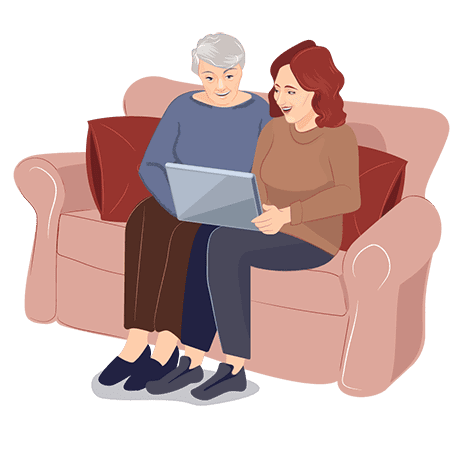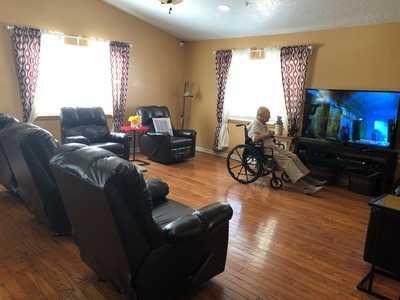
It can be difficult as the primary caregiver to care for an Alzheimer's parent. You have many resources that can help you get through this difficult time. These resources include advice on how to spot warning signs and how to communicate with your loved ones. This section includes information on how to recognize uncontrollable behavior as well as how to keep track and maintain a caregiving record. Below are some strategies to help you face the challenges of caring and managing an Alzheimer's sufferer.
Recognizing warning signs
It is important to recognize warning signs in Alzheimer's patients when caring for an elderly loved one. The disease is not complicated but caregivers must adapt their lives in order to deal with it. Caregivers often feel stigmatized about seeking care or treatment. But help is available. Support groups can provide information on caring for a loved one, as well as help with prescriptions and cooking.

Communicating with patients
Communicating with Alzheimer's patients can prove difficult, especially when they are unable to articulate their thoughts. Gentle encouragement should be given to avoid anger outbursts. You should also keep calm even if your conversation partner doesn't understand you. Talking is the most important aspect of Alzheimer's care, so be patient. Hands-on gestures of affection and love include holding hands.
Controlling uncontrollable behaviours
The most challenging aspect of caring and managing a loved one suffering from dementia is dealing with their uncontrollable behavior. Dementia can lead to disinhibition, an aversion to moral behavior. Being a caregiver for someone suffering from dementia can be a stressful and emotional experience. Here are some ways to manage these outbursts.
Keep track of caregiving activities
As an Alzheimer's caregiver, it is important to take stock of your tasks. You can delegate tasks to others or use your own memory to track your caregiving activities. Friends, family, and volunteer groups can all help. You may be able to help your loved one with financial tasks such as paying bills, ordering prescriptions, or placing orders for medication. If your loved one can't do these things on his own, find ways to hire people who can help you.
Plan for the future
After a diagnosis has been made, a plan must then be created to address the needs of the person with Alzheimer's. Early planning allows the individual to express their wishes and work out complicated legal and financial issues. This allows for time to make financial and emotional adjustments. First steps include selecting a caregiver, and evaluating your financial assets to plan for the future. These conversations may be assisted with the help of a lawyer or financial appointee.

Support groups are available for caregivers
If you're caring for a loved one with Alzheimer's disease, you may be wondering whether there are any local support groups for caregivers. Having a support group can be invaluable. Alzheimer's disease caregivers can discuss their experiences and share ideas to cope with the changes. Support groups are a great way to get support for loved ones with dementia.